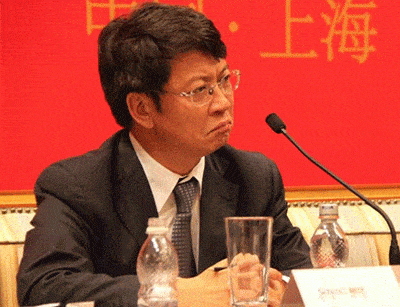
Kwok Yingshing was reappointed as chairman of Kaisa today.
In an abrupt reversal following months of conflict with the Shenzhen city government, Kwok Yingshing today was reappointed to his position as chairman of the board of troubled real estate developer Kaisa Holdings.
The reinstatement of Kwok at the head of the Shenzhen-based property firm comes less than one week after the city government partially released its death grip on the developer’s sales at seven of its projects in the southern Chinese metropolis.
Kwok, whose family still owns a controlling 49 percent stake in Kaisa announced his resignation from the company last December shortly after the government began blocking sales at what eventually amounted to eleven of the company’s projects in Shenzhen.
The return to the company’s pre-crisis leadership likely means an end to the proposed takeover of the developer by rival Sunac, an eventuality which seems to have been welcomed by holders of Kaisa’s bonds, which quickly rose in value today.
Loan and Sales on Track, Kwok Returns
Kwok, who officially left his posts as chairman and executive director of Kaisa on December 31st, was reappointed to both roles today, according to a notice filed by the company with Hong Kong’s stock exchange. Sun Yuenan and Ye Lieli, who had served as co-chairman after Kwok left the company, were redesignated as Vice Chairmen of the company, the same posts that they held prior to Kwok’s departure.
The board reshuffle was preceded last week not only by the release of 142,000 of the nearly 234,000 square metres of housing formerly blocked from sale by the government, but also by Kaisa having secured a RMB 1.38 billion ($222 million) loan from a subsidiary of Sino Life. The Shenzhen-based state-owned insurer is the second largest shareholder in Kaisa, with a 29.96 stake in the developer.
Sunac Loses Out on Second Takeover Bid

Sunac chairman Sun Hongbin may be missing out on his second attempt to take over a distressed rival
Kaisa’s statement today made no mention of the reason for Kwok’s return to the company, however, considering that the property tycoon was essentially forced out by the Shenzhen government’s moves last year, it can be assumed that he has only been able to return with the consent of the local authorities.
Following the release for sale of more than half of Kaisa’s frozen properties last week, and the provision of the loan from a Shenzhen-based SOE, some kind of agreement has been likely been reached with the local government. No reason was ever given by Shenzhen authorities or Kaisa for the government’s actions against the developer, although speculation was that the conflict was over graft in land acquisition for affected properties.
For Sunac, the apparent settlement between the Kwok family and the Shenzhen government likely means an end to the crisis that provided the Tianjin-based developer with its takeover opportunity.
If, as many market analysts are now speculating, Sunac has lost its chance to take over Kaisa’s pipeline of projects, which include highly coveted sites in Shenzhen and Shanghai, it would be the second thwarted takeover bid in six months for the property company belonging to billionaire Sun Hongbin. Sunac’s 2014 attempt to take over Greentown fell apart in November last year after the Hangzhou-based developer backed out of the deal citing irreconcilable differences.
Bond Payment Needs Resolution and Court Settlements Await
While Kwok now has returned to the helm of the company he started, major challenges still await Kaisa as it struggles to deal with the financial aftermath of five months of severely restricted cashflow.
The developer missed a coupon payment on a US dollar denominated bond last month and its 30-day grace period on that technical default is rapidly expiring. Also last month the company’s attempt to restructure its offshore credit obligations was rejected by bondholders, and Kaisa revealed last week that its mainland-based creditors have filed 70 court actions seeking to freeze assets because of debt repayment issues.
Despite these challenges, however, bondholders were cheered by Kwok’s return.
Kaisa’s notes, which have rollercoastered through the company’s close encounters with default and bankruptcy, were up 3-4 points today on average, according to a report in Reuters.
Leave a Reply